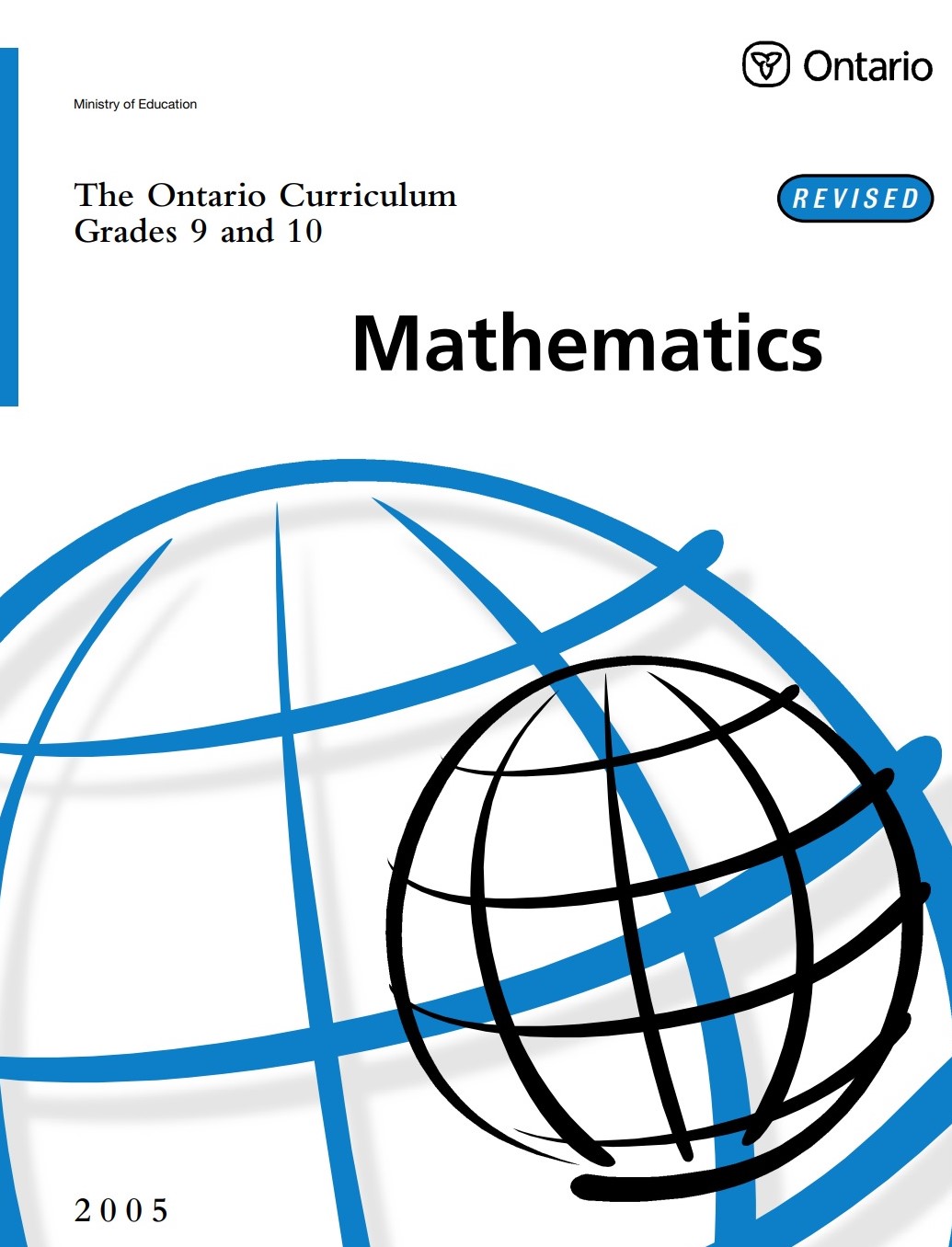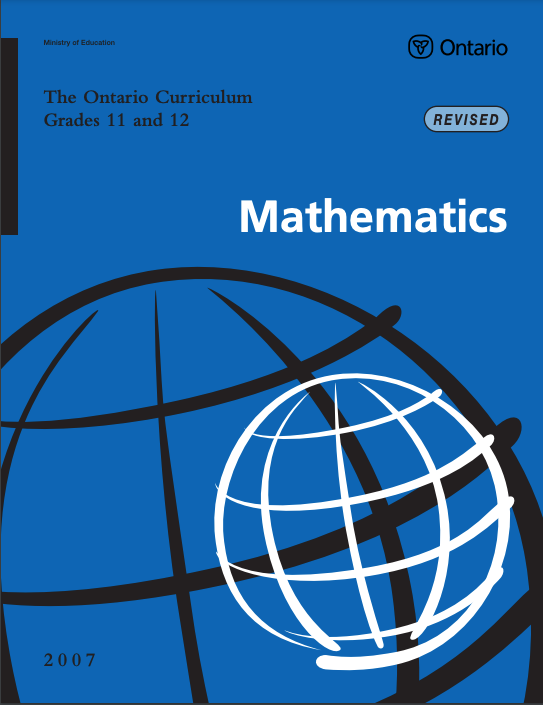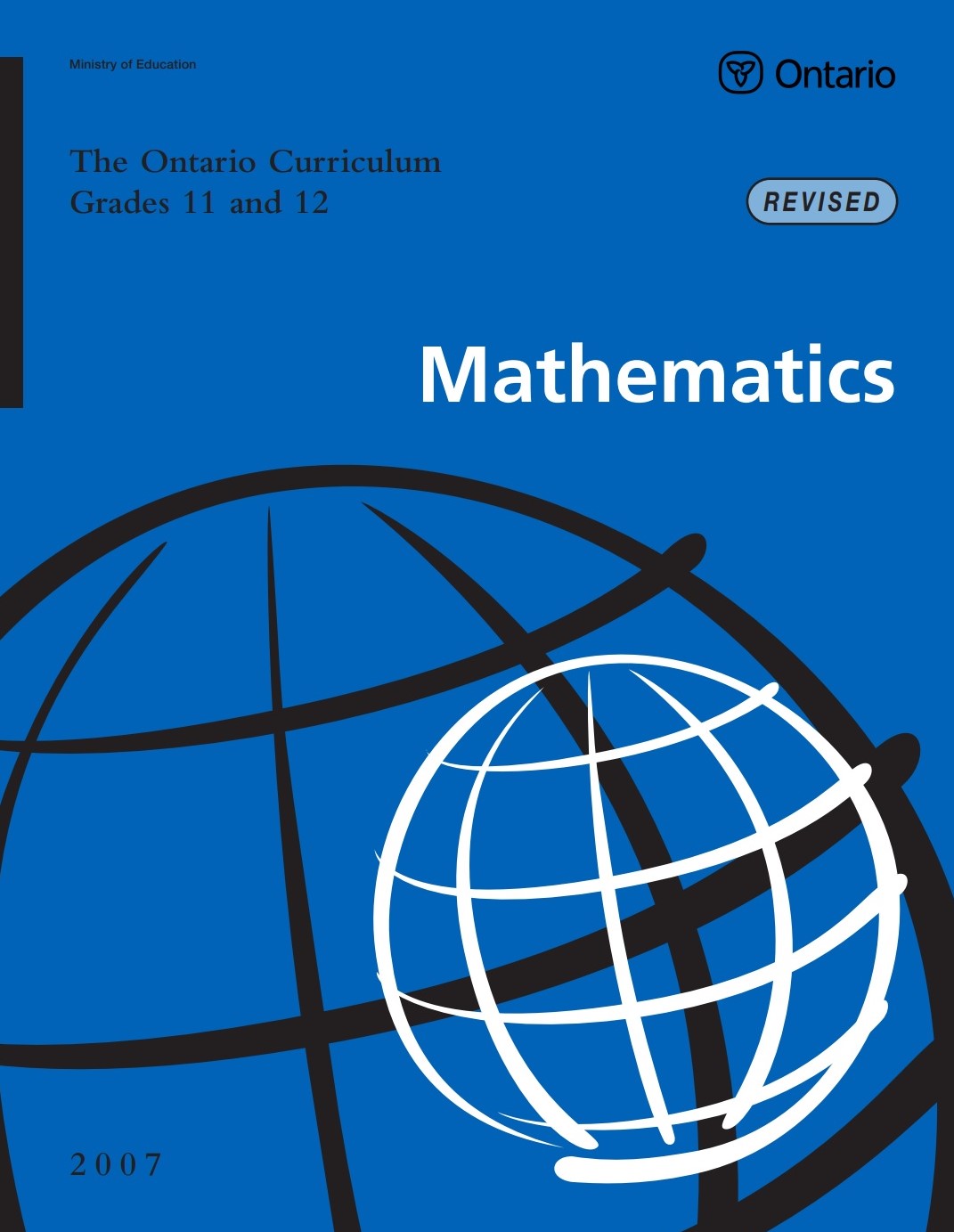
This course enables students to consolidate, and continue to develop, an understanding of mathematical concepts related to number sense and operations, algebra, measurement, geometry, data, probability, and financial literacy. Students will use mathematical processes, mathematical modelling, and coding to make sense of the mathematics they are learning and to apply their understanding to culturally responsive and relevant real-world situations. Students will continue to enhance their mathematical reasoning skills, including proportional reasoning, spatial reasoning, and algebraic reasoning, as they solve problems and communicate their thinking.

This course enables students to broaden their understanding of relationships and extend their
problem-solving and algebraic skills through investigation, the effective use of technology, and
abstract reasoning. Students will explore quadratic relations and their applications; solve and
apply linear systems; verify properties of geometric figures using analytic geometry; and investigate the trigonometry of right and acute triangles. Students will reason mathematically and
communicate their thinking as they solve multi-step problems.

This course introduces the mathematical concept of the function by extending students’ experiences with linear and quadratic relations. Students will investigate properties of discrete and continuous functions, including trigonometric and exponential functions; represent functions numerically, algebraically, and graphically; solve problems involving applications of functions; investigate inverse functions; and develop facility in determining equivalent algebraic expressions. Students will reason mathematically and communicate their thinking as they solve multi-step problems.
- Teacher: Durdana Ilyas
- Teacher: Annalyn Torio

This course enables students to broaden their understanding of real-world applications
of mathematics. Students will analyse data using statistical methods; solve problems
involving applications of geometry and trigonometry; solve financial problems
connected with annuities, budgets, and renting or owning accommodation; simplify
expressions; and solve equations. Students will reason mathematically and communicate
their thinking as they solve multi-step problems. This course prepares students for
college programs in areas such as business, health sciences, and human services, and
for certain skilled trades.

This course broadens students’ understanding of mathematics as it relates to managing
data. Students will apply methods for organizing and analysing large amounts of
information; solve problems involving probability and statistics; and carry out a
culminating investigation that integrates statistical concepts and skills. Students will
also refine their use of the mathematical processes necessary for success in senior
mathematics. Students planning to enter university programs in business, the social
sciences, and the humanities will find this course of particular interest.
- Teacher: Annalyn Torio

This course extends students’ experience with functions. Students will investigate the
properties of polynomial, rational, logarithmic, and trigonometric functions; develop
techniques for combining functions; broaden their understanding of rates of change; and
develop facility in applying these concepts and skills. Students will also refine their use
of the mathematical processes necessary for success in senior mathematics. This course
is intended both for students taking the Calculus and Vectors course as a prerequisite
for a university program and for those wishing to consolidate their understanding of
mathematics before proceeding to any one of a variety of university programs.
- Teacher: Durdana Ilyas
- Teacher: Annalyn Torio

This course builds on students’ previous experience with functions and their developing
understanding of rates of change. Students will solve problems involving geometric and
algebraic representations of vectors and representations of lines and planes in three-dimensional space; broaden their understanding of rates of change to include the
derivatives of polynomial, sinusoidal, exponential, rational, and radical functions; and
apply these concepts and skills to the modeling of real-world relationships. Students
will also refine their use of the mathematical processes necessary for success in senior
mathematics. This course is intended for students who choose to pursue careers in fields
such as science, engineering, economics, and some areas of business, including those
students who will be required to take a university-level calculus, linear algebra, or
physics course.
- Teacher: Annalyn Torio